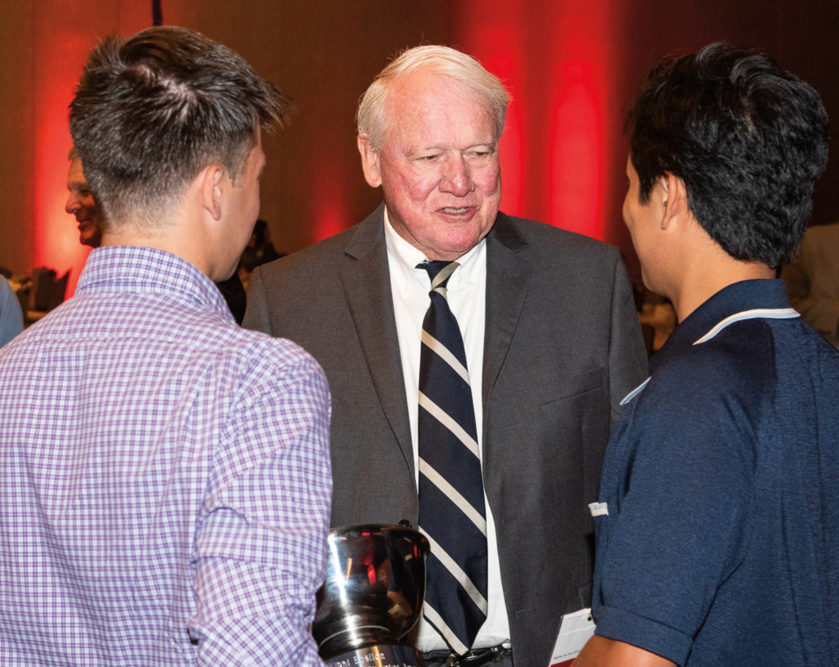Editor’s Note: The Sigma Phi Epsilon Citation is bestowed upon alumni who have achieved extraordinary success and stature in their chosen professions. Since the award was first presented in 1965, only 256 have received the honor. Among them are world leaders, titans of industry and commerce, renowned authors and artists, civil servants and military heroes, award-winning actors and all-star athletes.
Here, we share the story of one of the five brothers honored with this award at the 56th Grand Chapter Conclave in Houston.
Retired United States Air Force four-star General Billy Boles, North Carolina State ’61, attributes his success to his ability to connect and develop strong relationships with others — a skill he learned in Sigma Phi Epsilon at North Carolina State University.
Over the course of his 35-year military career, Boles rose steadily through the ranks, eventually becoming the Air Force’s head personnel officer. Along the way, he earned numerous awards and decorations, including the Distinguished Service Medal with oak leaf cluster, the Legion of Merit with oak leaf cluster and the Bronze Star Medal.
Despite — or maybe because of — his humble origins, Boles remains modest about all he’s achieved. He’s never forgotten the people who helped him along the way and frequently mentions them when speaking of his accomplishments. His family were sharecroppers, so they had little in the material sense. But Boles’ close-knit family gave him everything he needed.

As a teenager, he planned to work for one of the two big companies in his small town after high school. But he’d made an impression on people throughout the community, and some believed he should pursue a different path. His agriculture teacher, who was also his mentor, encouraged Boles to think about college and helped him get into North Carolina State. And the man who owned the land that Boles’ family farmed provided financial assistance whenever he ran low on funds.
Although he hadn’t planned to leave home, Boles quickly adjusted to college life. He joined SigEp and served as house manager. He met his brothers for lunch at the chapter house most days, again creating connections that would have a lasting impact on his life. He recalled, “The SigEps were more than willing to help you with classes and other life lessons. You were teaching others, and you were learning from others through daily interactions with them.”
Serving in the ROTC also played a major part in his development during college. After graduating, Boles became an active duty member of the Air Force. He started out assisting with student records, but was soon given more responsibility. Boles became an instructor in the Air Force’s personnel school, training airmen at bases in the U.S. and Vietnam. Within a few years, he landed his first big assignment, working with the commander of the military personnel center at Randolph Air Force Base.
Due to his ability to work well with people and bring out the best in them, more promotions followed. His rise through the ranks culminated in being named commander of the Air Education and Training Command — the 70,000-person organization responsible for recruiting, educating and training Air Force personnel. In this role, he served as the senior personnel officer for the entire Air Force, an organization of more than 700,000 people at the time.
In 1997, Boles retired from the military. But he continued to work, first as an executive at a health care company and later for a tech firm. And although he had officially concluded his military service, he remained involved in the Air Force, mentoring prospective squadron support commanders. In 2011, the Air University Foundation dedicated the auditorium in its professional development center to Boles in recognition of his decades educating and mentoring Air Force personnel.









Leave a Reply